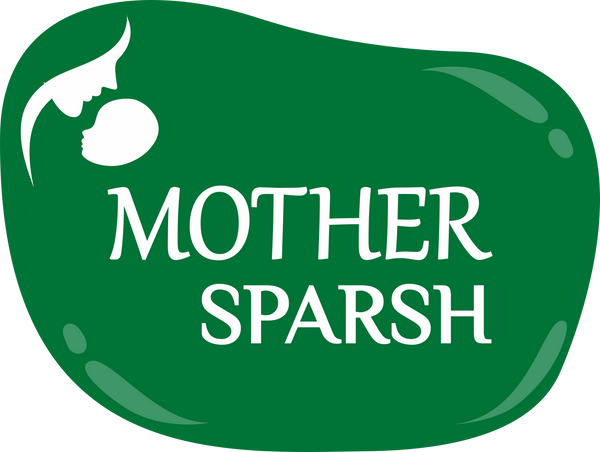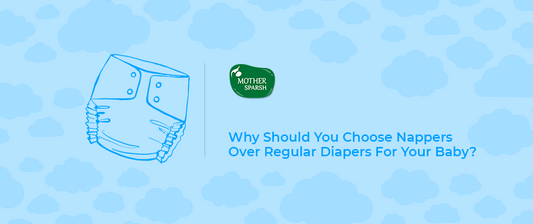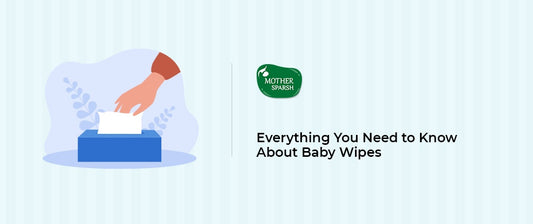Becoming a mother is a wonderful thing, but it can be terrifying too and as a new mother, you are always overwhelmed by every little move of your newborn. Immediate care of the mother after delivery is also important because motherhood can be a roller coaster ride, full of many ups and downs. The birth of a newborn can activate a muddle of powerful emotions. You may fluctuate between different emotions - from joy to anxiety to anger, all within a matter of minutes. Mood swings are common after delivery, but if the mood swings get severe and last longer than 2 to 3 weeks after delivery, you might be facing one of the symptoms of postpartum depression (PPD) and it’s advised you reach out to your doctor. Postpartum meaning in hindi is “prasavottar” which translates to the time after childbirth.
Most new mothers encounter a postpartum period with baby blues meaning a common temporary psychological state right after delivery, which is common and can last for 2-3 weeks.It includes mood swings, anxiety, and insomnia. But some new mothers confront a more severe and long-lasting form of the postpartum period.
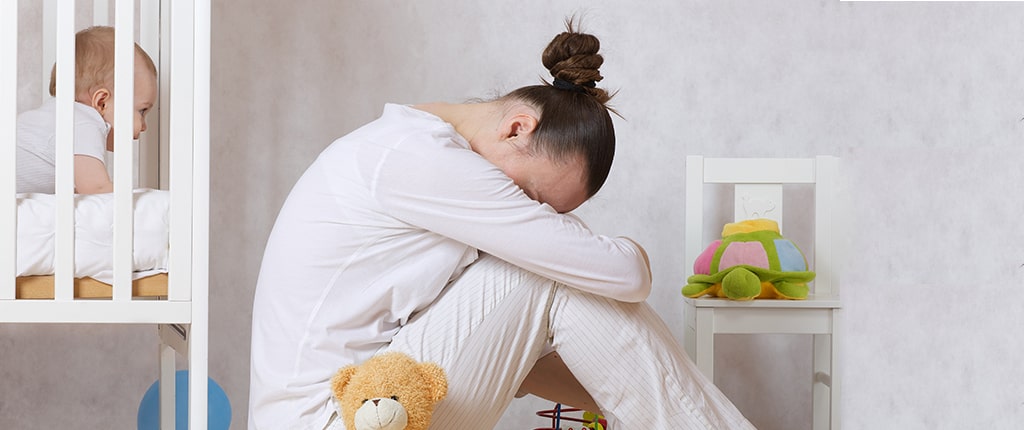
So now what? You must be questioning yourself - What does postpartum mean? How do I cope with postpartum? How do you mentally prepare for postpartum? When does PPD start? What is PPD full form? How long does postpartum depression last? Does everyone suffer from postpartum? How to reduce postpartum depression? and endless thoughts you might be dealing with along with your roller coaster ride.
We are here to help you with all your questions and queries regarding postpartum stress and postpartum delivery. So, sit back, read thoroughly, and know how to deal with postpartum depression and after delivery care for mother in India. Before that, let's talk about postpartum depression and how it is different from baby blues.
Most new mothers encounter a postpartum period with baby blues meaning a common temporary psychological state right after delivery, which is common and can last for 2-3 weeks. It includes mood swings, anxiety, and insomnia. But some new mothers confront a more severe and long-lasting form of the postpartum period.
So now what? You must be overthinking and questioning yourself - What does postpartum mean? How do I cope with postpartum? How do you mentally prepare for postpartum? When does PPD start? What is PPD full form? How long does postpartum depression last? Does everyone suffer from postpartum? How to reduce postpartum depression? and endless thoughts you might be dealing with along with your roller coaster ride.
All you have to do is RELAX! We are here to help you with all your questions and queries regarding postpartum stress. "Overthinking" is the reason behind all your postpartum stress. So, sit back, read thoroughly, and know how to deal with postpartum depression and after delivery care for mother in India. Before that, let's talk about postpartum depression and how it is different from baby blues.
What Is Postpartum Depression? How is it Different From Baby Blues?

Postpartum depression is not a personality or character trait which is a flaw or weakness of any kind of disorder. Sometimes, it is just a complication after childbirth. Many times, postpartum depression is mistaken for baby blues, but the symptoms and signs are severe and last longer.
Baby blues signs and symptoms last for 2-3 weeks only, including anxiety, insomnia, mood swings, feeling overwhelmed, appetite problems, and low concentration.
Whereas, postpartum depression is an intense and severe form of baby blues that interferes with your ability to work or care for your baby. Postpartum stress develops symptoms within a few weeks after delivery or later and can stay for a year or longer. It is recommended to start noticing your stages of postpartum depression from the beginning.
Symptoms of Postpartum Depression are-
- Depression or severe mood swings
- Excessive cry spells
- Difficult to bond with your baby
- Isolating yourself from friends and family
- Irregular appetite
- Insomnia or excess sleeping
- Severe body fatigues or low energy
- Less active in physical activities
- Severe anger issues or irritability
- Self-doubt or low esteem of being a good mother
- Hopelessness
- Less concentration
- Dizzy feeling all the time
- Severe panic attacks resulting in fainting
Causes Of Postpartum Depression
There are no such reasons or causes of postpartum depression except physical/hormonal changes and emotional/mental changes. More common causes of postpartum depression can include the following:
1. Physical Change - After delivery, there is a dramatic change in hormones in your body that may cause baby blues, which may or may not result in postpartum stress or depression later. The hormonal changes usually make your body look different than before. Physical appearance after delivery affects some mothers.The drastic drop or rise in hormones leads to severe mood swings that might cause anxiety and panic attacks, resulting in PPD.
2. Emotional Change - Due to the hormonal imbalance, many factors affect your sleep. Being sleep-deprived eventually makes you overwhelmed, anxious and hyperactive. Not getting enough sleep is the mainspring of anger issues, panic attacks, and anxiety. Any emotional or mental change can lead to postpartum stress or depression.
3. Breastfeeding and postpartum depression - After delivery, some mothers face a problem in breast milk production, which makes them anxious and stressed. We all know how crucial it is to provide a good amount of mother milk to a baby for healthy growth. That's when a mother starts stressing about the baby's diet or feed which sometimes may result in postpartum stress or depression. There is always a solution for every problem. So, for the lactating issues, you can try Mother Sparsh's Vardaan Ayurvedic Home Remedy With Shatavari & Dalchini For Lactating Mothers
8 Tips To Cope With Postpartum Depression & Stress:
In addition to talking to a healthcare professional, here are some tips to cope with postpartum depression and postpartum stress that may make you feel a little more comfortable:
1. Proper Rest and Sleep
'Sleep when the baby sleeps' every mother waits for their baby to sleep and then focuses on theirs. But This gets annoying after some time when you don't get proper rest or time to sleep on time. In the early days, your baby might not sleep through the night, but take help from your partner or other family members to give yourself the right amount of rest or sleep.
2. Eat Healthy and Proper Diet
What to eat after delivery? Try having nutrition-rich food that nourishes your health. While having a balanced diet doesn’t cure postpartum depression, it does help you get into the habit of eating healthy and gives your body the fuel it needs (which is especially important for nursing mothers). You can also plan out healthy snacks for the week and munch on something while you’re on the go or taking a break!
3. Regular Physical Activity

How to take care of your body after giving birth? In particular, regularly walking with your baby in a stroller can give you the exercise you need. The fresh air and sun can also do wonders for mood! Try not to be confined to the corners of your house, go for a walk around the neighbourhood with your baby in the stroller or to your favourite park. You can also try working out for 10 minutes in small intervals during the day, this can help to ease anxiety along with postpartum stress.
4. Resist Isolation from your Friends and Family
Start taking small breaks from your baby care and spend some time with your family, friends, or partner. Start communicating with your close friends or family members to share your feelings and emotions. We understand how frustrating you may feel at times, it’s important to remember you’re not alone. Don’t hesitate to keep an open dialogue with your close ones or with your healthcare professional.
5. Keep Yourself Hydrated
Just because you breastfeed your baby most of the time throughout the day, you need to keep yourself hydrated so that the production of breast milk does not get affected. Also, keep yourself hydrated as you need more than usual hydration to keep you and your baby healthy.
6. Self-care Sessions With Yourself
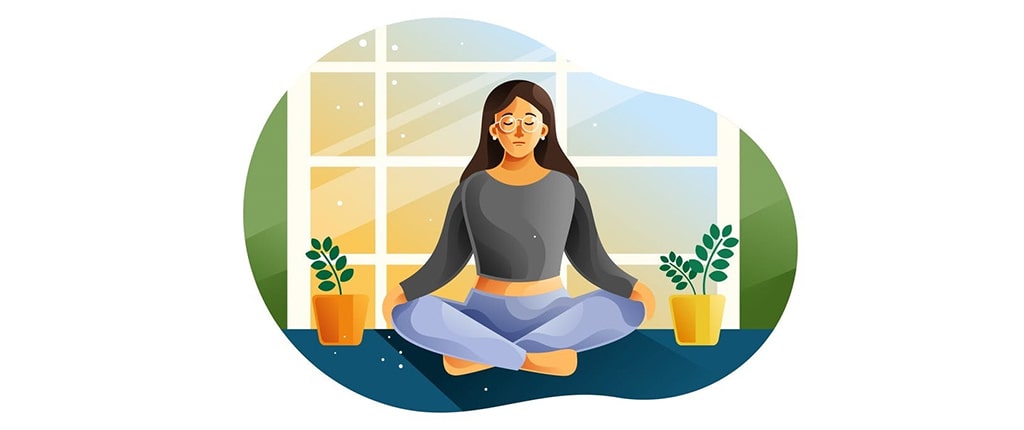
We always compare ourselves with others when we are at our lowest. Stop comparing yourself with your fellow mother friends or what you see on social media. Do your best for yourself and your baby by maintaining a balance between your self-care and baby care. Allow yourself time to cope up and take a breather when you have to.
7. Good Relationship With Your Partner
Spending some good time with your partner can help you heal from within. Try to communicate with your partner daily about your feelings and emotions so that you don't feel left out or the only one who takes care of your baby. Ask for your partner's help whenever you feel the need, either physical or emotional but never hide your problems from them. Not bottling up your feelings can also help you cope up with postpartum depression.
8. Proper Treatment
There are many treatments available depending upon your condition of PPD or to help you cope with postpartum stress. Therapies like CBT/DBT, hormonal therapies, proper medications, and self-care treatments. Never take yourself for granted as this will affect you, your baby, and your family. So, consult a doctor / healthcare professional if you think you may have postpartum depression. Most of all, always remember there is hope and that being diagnosed with postpartum depression does not make you a bad person or a bad mother.
